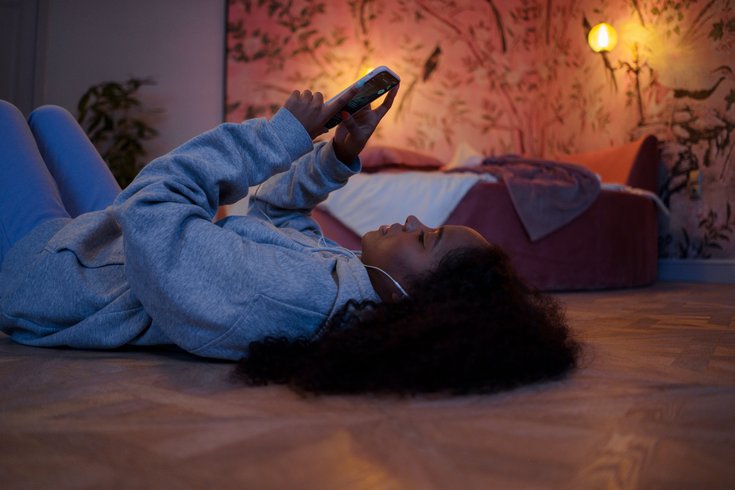
January 08, 2024
 cottonbro studio/Pexels
cottonbro studio/Pexels
A recent study found that Black kids and teens who experience racial discrimination online may develop symptoms of PTSD.
Cyberbullying and racism are known to have adverse effects on kids and teens, but recent research shows how race-based discrimination experienced online can lead Black children to show symptoms of one specific disorder.
A new study found that Black adolescents in the U.S. who experience racial discrimination online can develop symptoms of post-traumatic stress disorder. The study, published last week in the JAMA Psychiatry journal, also found that participants' PTSD symptoms were linked to suicidal thoughts.
PTSD is a mental health condition, usually triggered by an incident, that can cause flashbacks, nightmares and severe anxiety. The study, which examined 525 Black children between the ages of 11 and 19, found that those who received individually targeted racial discrimination online — such as through messaging or memes — reported several PTSD symptoms, including intrusive thoughts, feeling isolated or on guard and having uncontrollable distress. The study's results did not vary by age or gender.
The study determined that Black children who experienced racism online were more likely to report PTSD symptoms, and that those who developed PTSD symptoms were more likely to report suicidal thoughts. However, there was no confirmation that experiencing online racism directly leads to increased suicidal thoughts. The authors said further research is needed to find out whether there's a direct link between online racial discrimination and suicidal ideation.
"We know that cyberbullying is an issue for all kiddos," study coauthor Ashley Denise Maxie-Moreman told NBC News. "But in particular, for our Black youth, cyberbullying in the form of online racial discrimination is a really big issue."
The researchers said there is a "dire need" for research on suicidal ideation in Black youth. Suicides among Black children have been on the rise in the past two decades — between 2007 and 2020, the suicide rate among Black children and teens (10-17 years old) jumped by 144%, the fastest rising suicide rate among any racial or ethnic group, according to a 2023 report from the Johns Hopkins Bloomberg School of Public Health.
Several risk factors for suicidal thoughts were highlighted in the report. Among them was the experience of racism, which can stem from many offline and online sources.
"Youth experiencing racial discrimination can internalize the strain resulting from inequities and unfair treatment, resulting in anger, rage, and hopelessness that has been associated with exacerbating risk for suicidal ideation and behaviors," the authors wrote.
A 2020 study published in the Journal of Applied Developmental Psychology found that Black American adolescents experience, on average, five incidents of racial discrimination each day, and that discrimination is more frequently experienced online. Eight in 10 young people of color have experienced individual discrimination on social media, according to the Johns Hopkins report.
Along with PTSD, racial discrimination — both online and in real life — can lead to depression, anxiety, substance use, diabetes, obesity and dementia, the Washington Post reported. The constant vigilance and long-term stress brought on by experiencing racial discrimination can wear down the brain, causing it to age at an accelerated rate.
"This is not an effect of race," Nathaniel Harnett, a neuroscientist and assistant professor at Harvard Medical School, told the Washington Post. "It is an effect of the burdens we place on racial groups."
Young people experiencing racism can be aided in several ways by trusted adults. Parents can have open dialogues with their children about discrimination they experience online or in-person, and teachers and social workers can connect Black youth with mental health services.
Social media and other online platforms should also be held accountable for online discrimination, according to the new study's researchers. The study's authors said online platforms should be aware of the links between online racial discrimination, PTSD and suicidal ideations, and that the platforms should "create safer spaces for Black adolescents by proactively monitoring and reducing hate speech."
Follow Franki & PhillyVoice on Twitter: @wordsbyfranki
| @thePhillyVoice
Like us on Facebook: PhillyVoice
Have a news tip? Let us know.